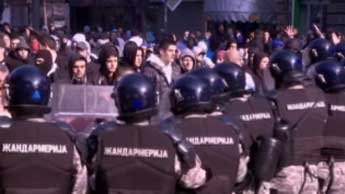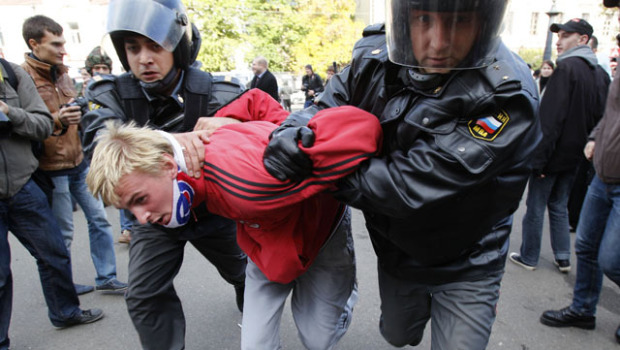BY ROB SALERNO – Gay rights in Eastern Europe suffered a major setback this week as Pride parades were banned in the Serbian capital city of Belgrade and in the Russian province of Arkhangelsk.

In Belgrade, authorities banned the Pride parade as well as demonstrations by anti-gay protesters. The ban was pitched as a public safety move, as last year’s Pride parade ended in violence between marchers and far-right nationalists that left more than 150 people — most of them police officers who’d been ordered to protect the marchers — wounded.
Gay rights campaigners are considering taking the state to the European Court of Human Rights over the matter. As Serbia is a candidate member for the European Union, and the EU doesn’t look kindly on depriving citizens of their civil and political rights, this may become a major issue for Serbia.
For their part, Serbian gay activists briefly blocked a highway to unfurl a banner promoting gay rights in lieu of attempting a full parade.
In Moscow, a gay rights rally once again devolved into chaos, with 40 people detained. Apparently police were unsure if the detained were Pride marchers or protesters who were pelting the marchers with tomatoes.

At least they got to hold the parade; the Russian oblast (province) of Arkhangelsk has banned all gay demonstrations, period. The subarctic region is home to 1.3 million people, a small handful of whom proposed the law in order to prevent homosexuality from becoming popular and to stop the “corruption” of children.
The European Court of Human Rights has already decided against various Russian bans on gay pride celebrations, but authorities continue to defy the court’s rulings.
Eastern Europe in general has been slow in officially accepting and promoting gay rights. Earlier this year, we reported on the major controversy that was kicked up in the Czech Republic over Prague’s first ever gay pride festival.

 Why you can trust Xtra
Why you can trust Xtra


